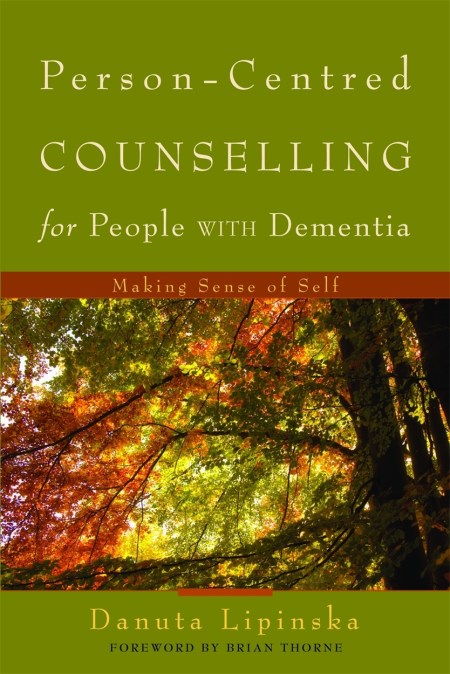Person-Centred Counselling for People with Dementia
On sale
15th January 2009
Price: £24.99
Although currently many people with dementia are not given the opportunity to receive professional counselling, this book explores the value of counselling for men and women living with this condition and how it enables them to make sense of their lives and their notions of themselves. The author explores the pervasive myth that all experiences of living with dementia are entirely negative and shows counsellors and carers how a person-centred counselling experience can have positive outcomes for those with dementia and the people who care for them.
Based on the author’s own experiences of counselling people with dementia, the book covers the fundamentals of the counselling process and precisely what a person-centred approach entails. The book then brings together several theories of counselling such as the role of the ‘spiritual’ in the counselling relationship; working with concepts of relational depth and configurations of Self; and the author’s own theories of relating to a person’s spiritual core. Accumulating findings from over 20 years of counselling experience in both the UK and the US, this book explores the importance of the Self and recognising each individual’s worth and value. Dialogue from the author’s counselling experiences is used to illustrate the person-centred counselling approach.
Providing a comprehensive guide to person-centred counselling for people with dementia, this book gives an illuminating perspective on the subject and will be of value to counsellors, health and social care professionals, carers, people with dementia and their families.
Based on the author’s own experiences of counselling people with dementia, the book covers the fundamentals of the counselling process and precisely what a person-centred approach entails. The book then brings together several theories of counselling such as the role of the ‘spiritual’ in the counselling relationship; working with concepts of relational depth and configurations of Self; and the author’s own theories of relating to a person’s spiritual core. Accumulating findings from over 20 years of counselling experience in both the UK and the US, this book explores the importance of the Self and recognising each individual’s worth and value. Dialogue from the author’s counselling experiences is used to illustrate the person-centred counselling approach.
Providing a comprehensive guide to person-centred counselling for people with dementia, this book gives an illuminating perspective on the subject and will be of value to counsellors, health and social care professionals, carers, people with dementia and their families.
Newsletter Signup
By clicking ‘Sign Up,’ I acknowledge that I have read and agree to Hachette Book Group’s Privacy Policy and Terms of Use
Reviews
This is a worthwhile read and certainly succeeds in making the point that people with dementia are people and should be respected as such - This for their benefit and ours. There may be a role for specialists personal counsellors within mainstream services. In addition the counselling approach and techniques described here can and should be adopted by professionals as a core component of their therapeutic armoury.
We've been waiting a long time for someone to write a definitive text on counselling persons with dementia. Now Danuta Lipinska has done it, and it is even better than we had hoped for
...she challenges the pervasive negative assumptions associated with dementia. She reminds us all that those with dementia are first and foremost persons of dignity, worthy of being honored with our respect. With warmth and humor, Danuta shares the clarity of her vision of honoring the wholeness of the person, and the unique experiences of their history, always encouraging full expression of their feelings and frustrations, their strengths and their struggles. Her book demonstrates the power of listening, and the patience of not hurrying silence. She creates a therapeutic environment that honors the tenacity of the human spirit, and allows them to . . . “speak the unspeakable, confront the unimaginable, and yet hold on to the Self the residual Self, the emerging Self.” This book will open your heart with hope. If you are a caregiver, a family member, a friend, a therapist or allied medical professional, it will offer you a fresh perspective to consider, and be a great resource
This valuable book… challenges us to raise our expectations, to believe in a person's capacity for growth and change despite – even because of – failing memory. This is a book about hope, respect and love.

